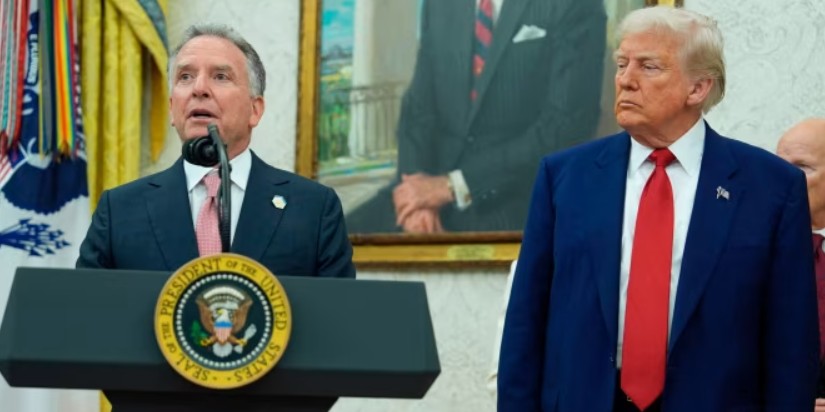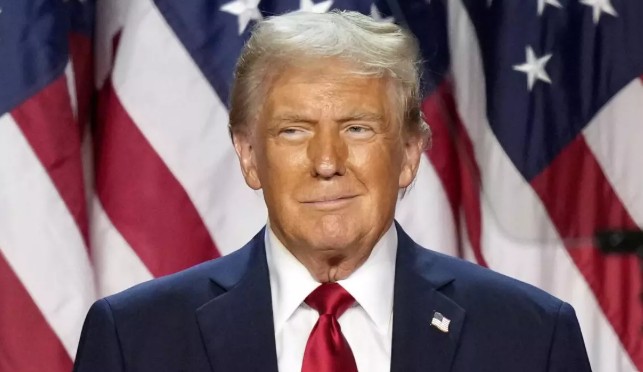In a pronouncement that sent ripples across the intricate landscape of global diplomacy and nuclear non-proliferation efforts, Donald Trump, a pre-eminent figure in American politics and a leading contender in the ongoing 2024 presidential election cycle, recently declared, “Under our potential Agreement — WE WILL NOT ALLOW ANY ENRICHMENT OF URANIUM!” This unequivocal assertion, shared via his social media platform, immediately ignited a fierce debate, underscoring a potential dramatic departure from established international norms and highlighting the profound implications for global nuclear policy should such a rigid stance be adopted as official US foreign policy.
It is critical to underscore that, as of June 2025, Donald Trump is not the incumbent President of the United States, and his remarks are thus a reflection of a prospective policy direction, rather than an immediate executive mandate. Nonetheless, the very nature of the declaration, originating from a figure with a proven track record of reshaping international relations, carries immense weight and warrants a detailed examination of its potential ramifications.
Uranium enrichment stands as a fundamental process, indispensable for both the peaceful generation of nuclear energy and, concurrently, the development of nuclear weaponry. At its core, enrichment involves increasing the concentration of the fissile isotope uranium-235 (U-235) from its natural abundance, which typically hovers around 0.7%. Low-enriched uranium (LEU), where the U-235 concentration is elevated to less than 5%, serves as the standard fuel for the vast majority of commercial nuclear power reactors globally, providing a reliable and carbon-free source of electricity for countless nations.
However, the same technological process, when pushed to higher concentrations, particularly to 20% or beyond, and especially to 90% or more, yields Highly Enriched Uranium (HEU), the essential fissile material required for the construction of nuclear weapons. This inherent dual-use characteristic of enrichment technology is the central dilemma underlying nearly all international non-proliferation concerns.

The prevailing international framework for governing nuclear activities is largely underpinned by the Treaty on the Non-Proliferation of Nuclear Weapons (NPT). This seminal international agreement, counting 191 State Parties including the United States, is built upon three pillars: non-proliferation (preventing the spread of nuclear weapons), disarmament (working towards nuclear weapons reduction by nuclear-weapon states), and the peaceful uses of nuclear energy. Crucially, Article IV of the NPT explicitly affirms “the inalienable right of all the Parties to the Treaty to develop research, production and use of nuclear energy for peaceful purposes without discrimination.” This universally acknowledged right implicitly extends to encompass the entire nuclear fuel cycle, of which the process of uranium enrichment is an integral and vital component.
A categorical declaration by a leading US political figure, or indeed a future American President, stating that the United States “will not allow any enrichment of uranium,” would represent a direct and significant challenge to this foundational tenet of the NPT. Such a policy would inherently suggest a unilateral attempt to re-interpret or even override established international law and the sovereign rights of nations. This approach risks provoking immediate and profound confrontation with numerous countries that either possess or are actively developing peaceful nuclear energy programs, including nations considered close strategic allies of the United States.
Countries such as Japan, Germany, and Brazil, all dedicated NPT signatories with advanced nuclear energy programs, currently conduct or maintain the capability for uranium enrichment, albeit under rigorous International Atomic Energy Agency (IAEA) safeguards. A demand for “no enrichment” would necessitate drawing complex distinctions between the enrichment activities of established allies for peaceful purposes and those of perceived proliferators, a nuanced differentiation that the broad phrasing of Trump’s statement does not readily accommodate.
While the sweeping nature of the statement implies a universal application, its primary focus is undeniably perceived to be Iran. The United States has long harbored profound concerns regarding Iran’s nuclear program, specifically its uranium enrichment capabilities, fearing a clandestine pursuit of nuclear weaponry. The 2015 Joint Comprehensive Plan of Action (JCPOA), a multilateral agreement from which the Trump administration unilaterally withdrew, was explicitly designed to curb Iran’s enrichment activities by restricting them to a low level (3.67% U-235) and significantly reducing its enriched uranium stockpile, in exchange for the lifting of economic sanctions.
Iran has consistently asserted that its nuclear program is solely for peaceful applications and vehemently defends its NPT-guaranteed right to enrich uranium for domestic energy production. A demand for “no enrichment” would signify a reversion to the most uncompromising US negotiating position, one that Tehran has consistently rejected, thereby risking an even greater escalation of tensions and potentially pushing the Islamic Republic further away from any future diplomatic resolution.
Beyond Iran, a “no enrichment” policy could also be theoretically directed at nations like North Korea, which has already withdrawn from the NPT and openly pursues nuclear weapons. However, given Pyongyang’s existing arsenal and rogue status, such a policy would likely have minimal practical impact on its current activities, serving primarily to reaffirm the US stance. More subtly, this policy could also implicitly target emerging nuclear powers or those contemplating the development of indigenous enrichment capabilities, such as Saudi Arabia or the United Arab Emirates, both of whom have expressed strategic interest in developing independent nuclear fuel cycles. For these nations, a US prohibition on enrichment would likely be perceived as an infringement on their sovereign right to energy independence and a stark demonstration of a double standard, especially considering that established nuclear powers maintain extensive enrichment capabilities.
The practical feasibility and the mechanisms for enforcing a blanket “no enrichment” policy are riddled with immense challenges. How would such a prohibition be imposed on sovereign nations? It would almost certainly entail the expansion of stringent economic sanctions, which, while capable of inflicting significant economic distress, have historically proven insufficient to entirely halt determined nuclear programs.
The ultimate enforcement could, theoretically, involve military intervention, but such a course of action would be fraught with catastrophic geopolitical perils and immense human and financial costs, rendering it an exceedingly remote and extreme option save for the most dire and immediate threats. Furthermore, a universal ban on enrichment would represent an enormous undertaking to monitor and verify, demanding an unprecedented level of intrusive international oversight that many nations would undoubtedly resist as a direct affront to their national sovereignty.
Domestically, such an assertive stance would likely garner strong support from certain hardline non-proliferation advocates and those who champion an absolute zero-tolerance approach to any perceived proliferation risk. However, it would concurrently face substantial opposition from a broad spectrum of experts who prioritize adherence to international law, the efficacy of multilateral diplomacy, and the legitimate energy security requirements of nations, particularly in the developing world.
Critics would argue that such a unilateral policy could paradoxically undermine the very NPT it purports to uphold by alienating its non-nuclear-weapon state signatories, potentially incentivizing them to withdraw from the treaty or surreptitiously pursue clandestine enrichment activities, thereby exacerbating, rather than mitigating, proliferation risks. Moreover, the complexities of global energy security, particularly in an era grappling with climate change, present a powerful counter-argument, as nuclear power is widely viewed by many as a vital component of a comprehensive strategy for decarbonizing global energy supplies.
Donald Trump’s characteristic foreign policy approach, marked by a willingness to challenge established international norms, a preference for unilateral action, and a pronounced emphasis on an “America First” doctrine, is broadly consistent with the thrust of such a declaration. His previous decision to withdraw the United States from the Iran nuclear deal in 2018 served as a clear precedent for his readiness to dismantle multilateral agreements deemed disadvantageous.
Should he return to the highest office and seek to translate this assertive declaration into formal policy, the intricate global nuclear landscape would undoubtedly experience unprecedented turbulence. Nations would be compelled to grapple with the delicate balance between their energy security needs and sovereign rights versus an extraordinary demand from the world’s leading superpower. The debate over “any enrichment of uranium” thus encapsulates the enduring tension between the laudable goal of non-proliferation and the complex realities of international relations and national aspirations in an increasingly interconnected and volatile world.


